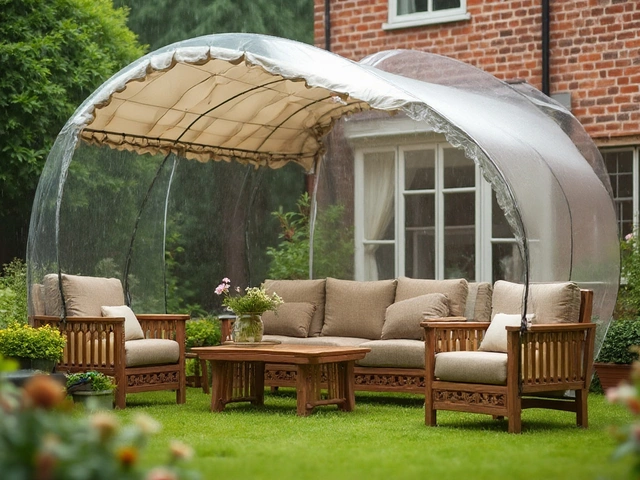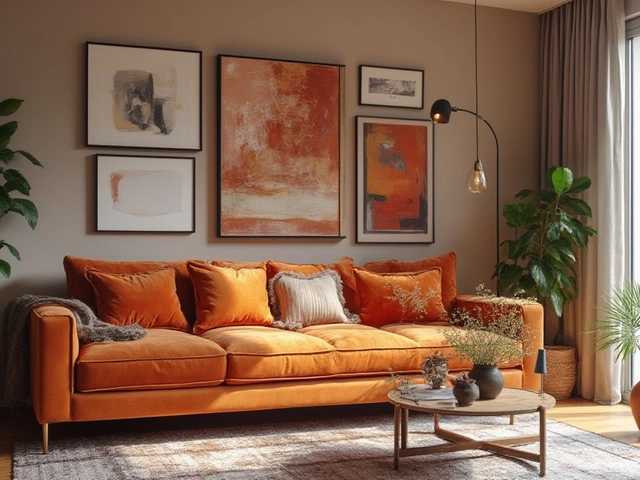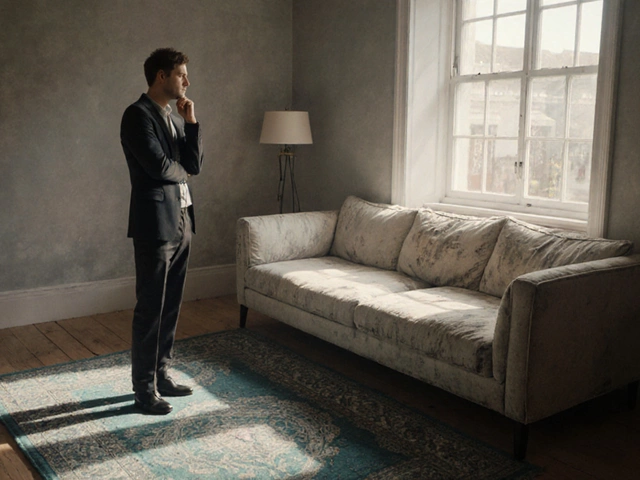 15
Oct,2024
15
Oct,2024
When pondering Medicare's coverage, one might naturally assume that essential comfort aids like recliner chairs would be included, but that's not always the case. Navigating the labyrinth of what Medicare leaves uncovered is as crucial as knowing what they do support. Whether you're exploring options for yourself or a loved one, understanding these boundaries is key to ensuring that you're not left blindsided by unexpected expenses.
Recliner chairs, often essential to those with mobility issues, can fall into a grey area of coverage. This article sheds light on eight specific exclusions concerning recliner chairs and provides helpful tips for navigating potential options within and outside the realms of Medicare.
- Understanding Medicare and Its Coverage
- The Definition of Durable Medical Equipment
- Recliner Chairs: Necessity or Luxury?
- Common Exclusions Within Medicare
- Navigating Medicare Appeals and Exceptions
- Wise Alternatives and Considerations
Understanding Medicare and Its Coverage
Medicare, a beacon of support for countless Americans aged 65 and older and younger individuals with disabilities, is a federally funded program that's often misunderstood when it comes to its specifics. Encompassing a variety of plan options, Medicare seeks to alleviate medical expenses and ensure that beneficiaries have access to necessary healthcare services. Its primary components, Part A and Part B, cover hospital visits and medical services respectively, each with its own set of inclusions and exclusions. While Medicare is a lifeline, many are surprised to discover what lies outside its safety net. For instance, it distinguishes between medical necessities and what might be considered a luxury, which significantly impacts Medicare coverage decisions, especially regarding recliner chairs.
The intricacies become evident as you dig deeper into supplemental plans like Part C and Part D, which offer additional benefits but require an informed choice based on individual needs. One might find solace in Part C, also known as Medicare Advantage, which occasionally provides broader coverage but often at a higher cost. These plans incorporate additional services not covered under standard Medicare, adding a layer of complexity to decision-making. An astute understanding of what constitutes medical necessity is of utmost importance since Medicare covers medical equipment only deemed essential for treatment or recovery. In terms of equipment, Medicare navigates requests with caution, deciding through strict medical criteria whether such demands are warranted.
Interestingly, historical amendments to Medicare reflect broader societal shifts towards inclusive healthcare, although these adjustments haven’t necessarily expanded to all types of medical equipment like recliner chairs. According to the Center for Medicare Advocacy, policy updates frequently trigger debates, especially when they touch on borderline equipment, illustrating the program’s dynamic nature. The fine line drawn between what’s considered essential and superfluous means it's vital for beneficiaries and their families to remain vigilant in understanding current policy frameworks. Being informed about these policies not only aids in curbing expenses but also helps in effectively advocating for exceptions.
For those venturing into Medicare for the first time, the volume of information can seem dizzying. A simple aid, often overlooked, is the Medicare Plan Finder available on the official website, which allows individuals to compare plan options side by side. Moreover, resources like local SHIP (State Health Insurance Assistance Program) offer guidance tailored to personal circumstances, ensuring beneficiaries make decisions in their best interest. As preparedness is crucial, knowing your coverage inside and out becomes key as it could end up being the difference between full and partial coverage of your needs. This knowledge empowers individuals to challenge the status quo through appeals or request re-evaluations, ensuring they receive the full spectrum of benefits they qualify for and, when possible, leveraging other supplement plans to fill gaps in coverage.
The Definition of Durable Medical Equipment
Durable Medical Equipment, commonly abbreviated as DME, refers to medical devices that are intended for use in a home setting to aid in a better quality of living. These valuable pieces of equipment must be prescribed by a doctor to fulfill the requirements set by Medicare, ensuring they serve a medical purpose. Items that qualify as DME typically must withstand prolonged usage, handle repeated use, and are primarily used for medical reasons. Classic examples include wheelchairs, walkers, and hospital beds. Medicare defines these items with precision, often leaving many people surprised by what counts and what does not.
The cornerstone in understanding DME lies in appreciating items designated as integral to recovery or daily medical needs. The focus of DME is not just about assistance but about tangible improvement in users' health and day-to-day functionalities. To fall neatly under the Medicare coverage, these must not only be deemed necessary but also meet specific performance criteria. Interestingly, while a wheelchair might be covered, a solely comfort-based item like a standard recliner chair would not, since it's typically not categorized under strict medical necessity. Medicare maintains stringent standards to filter out non-essential items, which often leaves beneficiaries scrambling for clarity.
"Medicare has an established list of criteria to determine what qualifies as durable medical equipment, but understanding whether an item not explicitly listed might be covered requires a more in-depth exploration," says Dr. Jane Morrison, a healthcare policy expert. Her insights underscore the vital need to meticulously review Medicare's requirements, especially when it comes to unique or niche products.
When you dive deeper into Medicare's outlook, one can discern that maintaining such rigorous criteria is mirrored by a need to manage costs effectively while ensuring that only necessary tools are provided under its schemes. This cost-management approach often leads to exclusions that might seem counterintuitive, like the partial exclusion of specialized recliner chairs. While some recliners designed for medical purposes, such as those aiding in specific health conditions, may be covered, others fail the coverage tests. Contemplating that many senior individuals find comfort and relief in recliners, it highlights a disconnect between personal health needs and bureaucratic classifications.
Additionally, it's worth noting the user perspective of what constitutes a durable medical good. For patients, particularly the elderly or those with chronic issues, products that ease daily burdens hold immense value. However, Medicare's definition remains grounded in medical necessity solely. Understanding these nuances can empower families to better communicate with healthcare providers and maybe explore other financial avenues, widening options outside Medicare's limited coverage for such seemingly grey areas in healthcare accommodations.
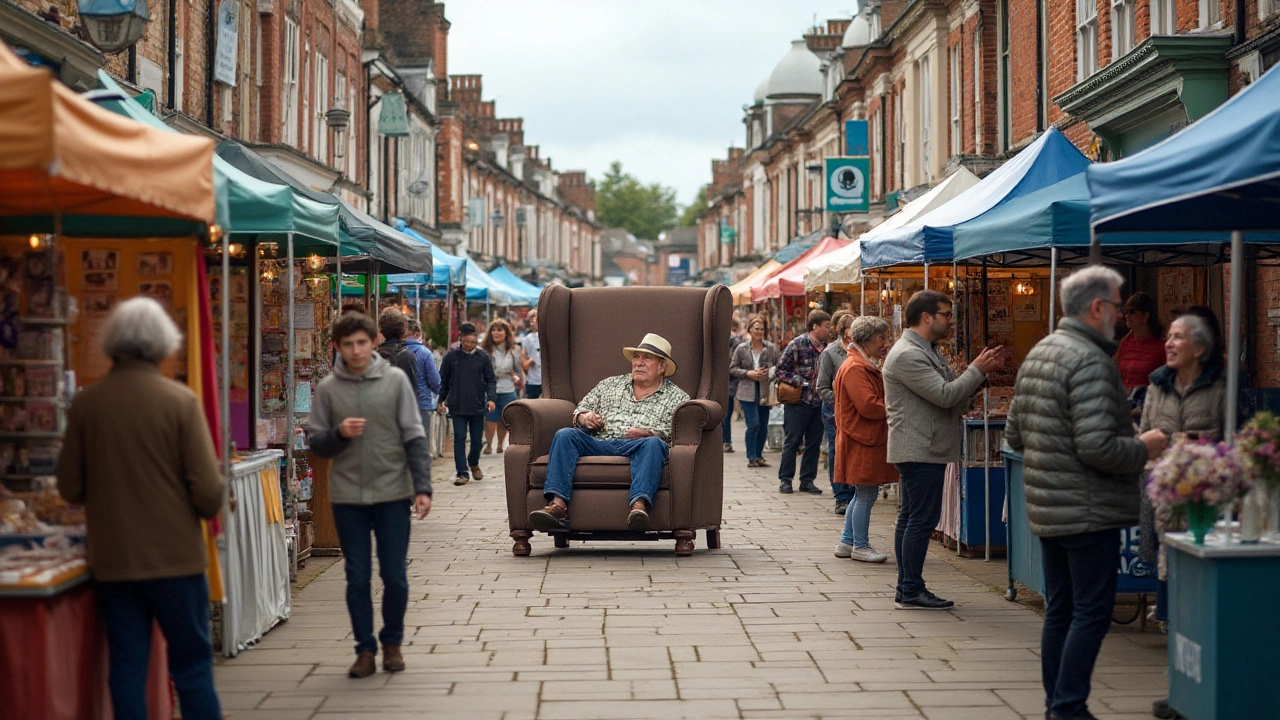
Recliner Chairs: Necessity or Luxury?
Recliner chairs have long been celebrated for their unparalleled ability to offer comfort, enabling users to relax after a busy day or to find the ideal position for restful sleep. But when we begin to think of them as a part of health management, the conversation changes. For many seniors or individuals who face health challenges like arthritis or chronic back pain, recliner chairs aren't just about luxury. They become crucial players in the game of comfort and well-being. These chairs offer ergonomic support and can alleviate pressure on sore joints or tired muscles, which can make a significant difference in day-to-day life.
While Medicare is generous in the equipment and services it covers, recliner chairs typically fall outside of this safety net, categorized instead as 'comfort items.' This definition overlooks the critical role these chairs often play for individuals with specific health needs. For example, someone recovering from a hip replacement might find that a recliner is an absolute necessity to gain pain relief and aid in mobility. Yet, as incongruous as it may seem, Medicare’s regulations often leaves these users responsible for the entire cost.
“Comfort to me is something I need to thrive, not just survive, and these chairs play a huge part in that,” says Dr. Emily Harris, a recognized authority in geriatrics.
For many, the distinction between a necessity and luxury becomes muddled by lifestyle and health perspectives. Recliner chairs can often feature mechanical lifts to assist in transitioning from seating to standing, electrical adjusting controls, and carefully designed leg rests. These are vital for those suffering from limited mobility or ongoing postural pain, serving a therapeutic purpose rather than merely providing comfort.
It's important to recognize that while the cost of these chairs can be a hurdle, people often find creative solutions. They might seek second-hand options or search for financial assistance through alternative programs. There's also the path of appealing directly to Medicare with supporting medical documentation to argue for necessity, although success in this endeavor is not guaranteed. Understanding the dynamics of Medicare's exclusions can help guide an informed decision while exploring viable alternatives.
Common Exclusions Within Medicare
While Medicare often serves as a safety net for many, covering a range of essential medical expenses, it does come with its fair share of limitations. Understanding these exclusions, especially when it comes to items like recliner chairs, is important for anyone navigating the healthcare system, either for themselves or their family members. Typically, Medicare only covers items classified as "durable medical equipment" (DME); however, not everything falls under this umbrella. For instance, most furniture commonly used for comfort, including recliner chairs, are not typically seen as necessary medical equipment, making them a common exclusion.
One might assume that a chair designed to help with mobility and comfort for medical purposes would qualify as DME, but Medicare draws a tough line. To be eligible, the item must be seen as medically necessary and prescribed by a healthcare provider for use at home. However, recliners are often regarded more as facilitators of comfort rather than of medical necessity. They can provide immense pain relief and mobility aid, yet, Medicare views them as an optional enhancement rather than a requirement, and this creates hurdles for those requiring them due to chronic pain or mobility issues.
In the labyrinth of Medicare specifications, understanding why recliners are relegated to the "non-covered" list is like reading between the lines of bureaucratic language. Medicare's intent is clear—resources must be prioritized for medical tools that explicitly aid in recovery or necessary everyday function, beyond mere comfort. Indeed, this delineation can feel harsh, particularly for those grappling with the day-to-day realities of aging or disability. But, the reality remains that if a piece of equipment like a recliner does not fit their stringent definition of critical medical aid, coverage is not guaranteed.
Given this complexity, some patients find themselves questioning the fairness of such exclusions. As one health policy analyst noted,
"There's a gap between what's perceived as necessary for health and quality of life, and what's actually covered by Medicare. Bridging this could improve patient satisfaction and care outcomes."Such sentiments fuel ongoing debates about what should legitimately qualify as medical equipment. While Medicare does provide coverage for wheelchairs and hospital beds, which are squarely categorized under DMEs, the humble recliner still struggles for a place at the table.
To better illustrate these differences, consider the following information on Medicare coverage for various home-use items:
| Item | Medicare Coverage |
|---|---|
| Wheelchair | Covered |
| Hospital Bed | Covered |
| Recliner Chair | Not Covered |
This clarity (or lack thereof) in coverage forces many to seek alternatives such as looking into supplemental insurance plans or consulting with healthcare providers for customized solutions. For some, it involves investigating financing options with retailers that offer medical-grade recliners fitting prescribed needs. Others may find success in petitioning local aid organizations or government programs that bridge the gaps left by Medicare. Whatever the path, understanding these exclusions is only the first step in effectively navigating toward obtaining needed care and comfort.
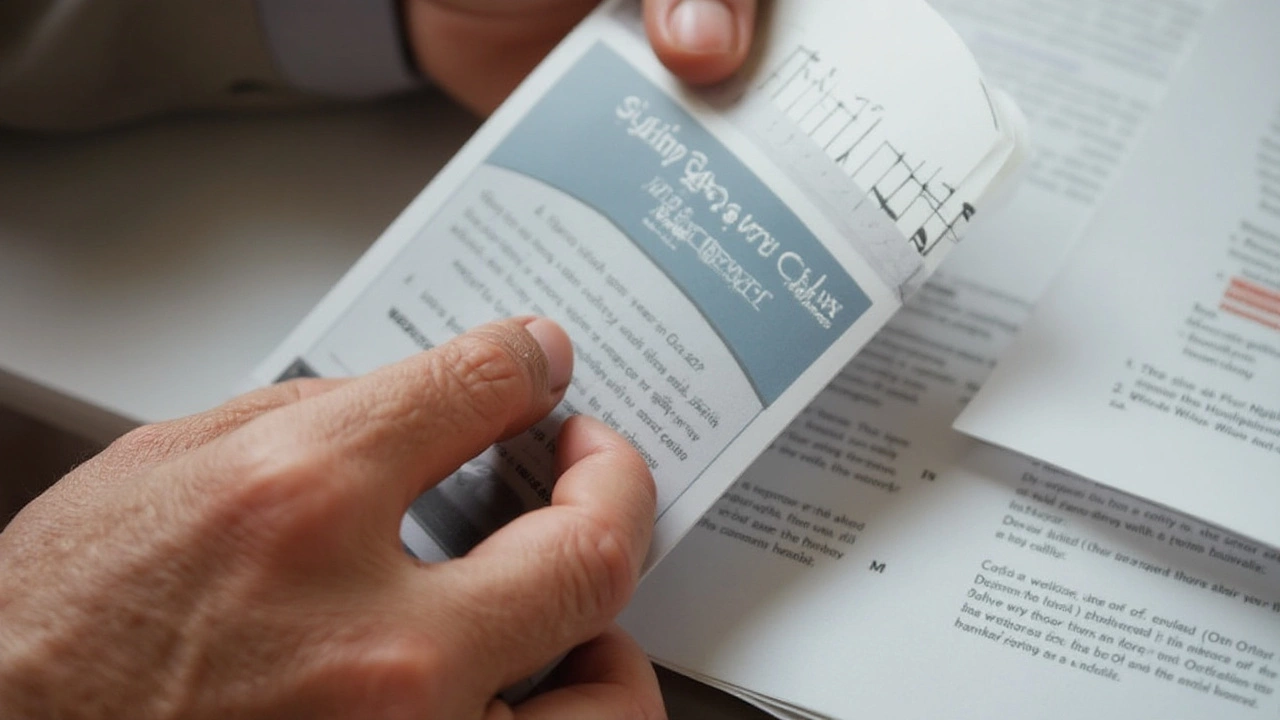
Navigating Medicare Appeals and Exceptions
Dealing with Medicare can sometimes feel like maneuvering through a dense jungle. You expect it to take care of all your healthcare needs, but when you encounter a denied claim, especially for something as essential as a recliner chair, it’s easy to feel overwhelmed. Medicare provides a structured process for appeals, which can give you the chance to present your case and, hopefully, turn a 'no' into a 'yes'. Let's dive into the details of how this works. First, you need to understand the functions of appeals. An appeal is your chance to clarify why Medicare should cover a service or item. You’ll start this process by receiving a Medicare Summary Notice (MSN), which details everything Medicare did or didn’t cover. When recliner chairs, often needed for health issues like severe arthritis or spinal problems, aren't covered, keep in mind that this is just the beginning.
The Medicare appeals process is a multi-level sequence and here’s how initiating it can impact your outcomes. Start with Level 1 by filing an appeal with the company that handles Medicare claims. You'll usually need to follow specific guidelines about where to send this and what information to include. This might seem tedious but it’s essential to adhere to these requirements meticulously to avoid unnecessary delays. According to Medicare, “You should include any information that can help support your case,” which can include physician letters stating medical necessity.
Sometimes, it's persuasive to include a doctor's opinion stating why the item is critical for health status, grounded in a patient's specific circumstances. If your Level 1 appeal is denied, you don’t need to lose hope. Level 2 provides further opportunity as you can request a reconsideration. Here, an Independent Review Entity (IRE) with no connection to your initial claim denial will take a fresh look. Make sure to include any additional information or clarifications needed to strengthen your case. Statistical data suggests that around 20% of appeals can be overturned at this stage.
But what if Level 2 doesn't work? Progressing to Level 3 lets you engage with an Administrative Law Judge (ALJ). This process is less common but can be sometimes effective for complex cases. Offering oral testimony or more extensive evidence can sway decision-making here. Many advocates argue that having a third-party professional or a lawyer might help your chances at Levels 3 and beyond. Meanwhile, Levels 4 and 5, involving Medicare Appeals Council reviews and judicial hearings, represent the final frontier, a place you can explore if you feel that persistence and perseverance matter.
Bear in mind the timing is crucial – sticking rigidly to deadlines for each level can affect the outcome. Interestingly, a report from The Inspector General suggests that appealing often reveals systemic misinterpretations that can not only help you but also aid in broader Medicare improvements. Finally, connecting with local patient advocacy groups or counselors can offer guidance throughout this challenging journey. So, remember: by engaging with these avenues, you not only advocate for yourself but could be paving the way for others to more readily access needed medical equipment like recliner chairs.
Wise Alternatives and Considerations
When Medicare doesn't cover crucial items like recliner chairs, it opens up a world of alternatives and considerations worth exploring. First on the list is understanding the individual needs and circumstances that make a recliner chair necessary. If mobility, comfort, and health conditions such as arthritis or back pain drive the need, then some options can alleviate the financial strain.
One avenue is exploring financial assistance through veteran's benefits if applicable. Often, veterans are eligible for additional benefits through the Department of Veterans Affairs that might cover such equipment. Additionally, some state programs offer assistance to low-income individuals needing durable medical equipment outside of what's covered by Medicare.
Another consideration is checking with local charities and community service organizations. Often, these entities have lending programs or financial assistance available for medical equipment like recliners. Also, exploring rental options can be a viable approach. Renting a recliner temporarily until a permanent solution is found can prevent unnecessary expenditures while still addressing immediate comfort needs.
It's important to get creative and think beyond just traditional funding sources. Organizing a small community fundraiser can sometimes generate enough support to meet such needs, especially if the cause resonates with the community members. Social media has made these efforts much more accessible, allowing for wider reach and engagement.
"Navigating Medicare can be challenging, but many solutions lie in community support and alternative funding opportunities," says a representative from AARP.Using health savings accounts (HSAs) and flexible spending accounts (FSAs) are other alternatives where eligible expenses for medical purposes can be reimbursed. These are increasingly being utilized for their tax advantages.
Recliner chairs specifically designed to assist with health issues might also be classified differently compared to general furniture. Look for chairs labeled as medical equipment, which could be a step forward if trying to secure insurance coverage. With this, maintaining documentation from healthcare providers detailing the necessity of such equipment is crucial for any appeals process.
Ultimately, staying informed and proactive is key. If Medicare denies coverage, it should be a cue to start juxtaposing options. Being adaptable and ready with these wise alternatives ensures that individuals can still access the comfort and support they need without falling into financial disarray. Consulting with healthcare advisors and social workers often opens doors to resources one might not initially consider.

